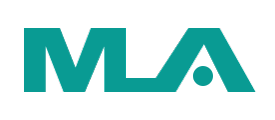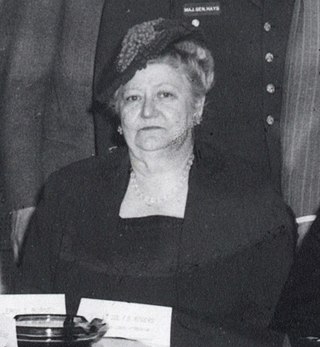The American Library Association (ALA) is a nonprofit organization based in the United States that promotes libraries and library education internationally. It is the oldest and largest library association in the world.

The Medical Library Association (MLA) is a nonprofit educational organization with more than 3,400 health-sciences information professional members.
The Special Libraries Association (SLA) is an international professional association for library and information professionals working in business, government, law, finance, non-profit, and academic organizations and institutions.

A health or medical library is designed to assist physicians, health professionals, students, patients, consumers, medical researchers, and information specialists in finding health and scientific information to improve, update, assess, or evaluate health care. Medical libraries are typically found in hospitals, medical schools, private industry, and in medical or health associations. A typical health or medical library has access to MEDLINE, a range of electronic resources, print and digital journal collections, and print reference books. The influence of open access (OA) and free searching via Google and PubMed has a major impact on the way medical libraries operate.

Elonnie J. Josey was an African-American activist and librarian. Josey was the first chair of the Black Caucus of the American Library Association, having been instrumental in its formation in 1970; served as president of the American Library Association from 1984 to 1985; and was the author of over 400 books and other publications.

Jesse Hauk Shera was an American librarian and information scientist who pioneered the use of information technology in libraries and played a role in the expansion of its use in other areas throughout the 1950s, 60s, and 70s.
The Art Libraries Society of North America is an organization of approximately 1,000 art librarians, library students and visual resource professionals. The ARLIS/NA was founded in 1972.
Education for librarianship, including for paraprofessional library workers, varies around the world, and has changed over time. In recent decades, many institutions offering librarianship education have changed their names to reflect the shift from print media to electronic media, and to information contained outside of traditional libraries. Some call themselves schools of library and information science, or have dropped the word "library" altogether.

A special library is a library that provides specialized information resources on a particular subject, serves a specialized and limited clientele, and delivers specialized services to that clientele. Special libraries include corporate libraries, government libraries, law libraries, medical libraries, museum libraries, news libraries. Special libraries also exist within academic institutions. These libraries are included as special libraries because they are often funded separately from the rest of the university and they serve a targeted group of users.
The Pennsylvania Library Association (PaLA) is the professional association for librarians in the U.S. state of Pennsylvania. It represents about 2,000 members affiliated with public, academic, special, and school libraries throughout the state, and was founded in 1901.
Music librarianship is the area of librarianship that pertains to music collections and their development, cataloging, preservation and maintenance, as well as reference issues connected with musical works and music literature. Music librarians often have degrees in both music and librarianship. Music librarians deal with standard librarianship duties such as cataloging and reference, which become more complicated when music scores and recordings are involved. Therefore, music librarians generally read music and have at least a basic understanding of both music theory and music history to aid in their duties.
The Progressive Librarians Guild(PLG) was founded in New York City in January 1990 by librarians concerned with the library profession's "rapid drift into dubious alliances with business and the information industry, and into complacent acceptance of service to an unquestioned political, economic and cultural status quo," according to the organization's statement of purpose. The initial three organizers were Elaine Harger, Mark Rosenzweig and Elliot Shore. The PLG addresses issues especially relating to librarianship and human rights.
Peggy Sullivan was an American librarian and educator. She was elected president of the American Library Association and was a scholar of the history of librarianship.

Carleton Bruns Joeckel was an American librarian, advocate, scholar, decorated soldier, and co-writer, with Enoch Pratt Free Library (Baltimore) Assistant Director Amy Winslow, A National Plan for Public Library Service (1948) that provided the foundation for nationwide public library services.

The Association for Rural & Small Libraries (ARSL) is a non-profit organization based in the United States that promotes libraries, especially libraries serving small and rural communities. The ASRL is a professional organization that promotes the value of rural and small libraries, and that provides resources and services for libraries in rural communities.
The Southeastern Library Association (SELA) is an organization that collaborates with different library associations within the Southeastern United States, including Alabama, Arkansas, Florida, Georgia, Kentucky, Louisiana, Mississippi, North Carolina, South Carolina, Tennessee, Virginia, and West Virginia.

Mary Louise Marshall was Librarian and Professor of Medical Bibliography at Tulane University School of Medicine, and the longest-running president of the Medical Library Association (1941–46).

The Mississippi Library Association (MLA) is a professional organization for Mississippi's librarians and library workers. It is headquartered in Jackson, Mississippi in the Mississippi Library Commission building. It was founded October 29, 1909 by Whitman Davis, a librarian at Mississippi A & M College. In 1968, it became incorporated as Mississippi Library Association, Inc.
The Seminar on the Acquisition of Latin American Library Materials (SALALM) is the oldest professional Area Studies library organization for academic librarians, archivists, book vendors, scholars, and students who specialize in Latin American and Caribbean Studies. Members are from at least 20 different countries. SALALM promotes better library services and purchasing power among individual members and member libraries. With the Secretariat based at Tulane University's Latin American Library, it is an international non-profit professional organization with three official languages: English, Spanish, and Portuguese. SALALM is an affiliate of the American Library Association. As of May 2015, the organization had 242 personal and 84 institutional members including librarians, archivists, book dealers, vendors, and university libraries.
Honorary Membership conferred by the American Library Association is the Association's highest award. "Honorary membership may be conferred on a living citizen of any country whose contribution to librarianship or a closely related field is so outstanding that it is of lasting importance to the advancement of the whole field of library service. It is intended to reflect honor upon the ALA as well as upon the individual." The Honorary Membership award was established in 1879.








